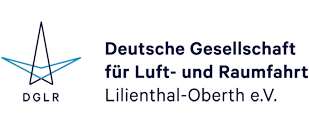DGLR-Publikationsdatenbank - Detailansicht
Autor(en):
H. Kumawat, F. Giertzsch, R. God
Zusammenfassung:
There is a great potential for reducing CO2 emissions resulting from passenger aircraft cabin. In addition to further lowering the power consumption and reducing the mass of large monuments and seats, it is above all the amount of catering that can improve the CO2 balance. The environmental impact of overloading, as well as the disposal and incineration of catering waste makes it necessary to organize the catering process more effectively. In our today’s digital world, there is still no information about the quantities consumed and the subsequent disposal of catering on board airplanes. Real world catering on the consumption are practically non-existent and represent a major challenge for the development of machine learning (ML) -based predictive models for the actual amount of meals and beverages required. This research paper focuses on overcoming the challenges posed by unavailability of in-flight catering data and enabling on-board consumption prediction. To this end, synthetic datasets were generated based on information such as statistics on consumer age, food choices, nationality, flight details, and other catering-relevant parameters. To generate the datasets closer to realism, two regions have been chosen to differentiate passenger meals and beverage preferences: A flight from Europe to east (India) and a flight to the west (USA). Utilizing the synthetic datasets, ML models were developed to predict in-flight consumption per flight, facilitating optimized catering orders and minimizing aircraft catering overload and waste, thereby reducing CO2 emissions per flight and contributing positively to environmental sustainability. The models are trained and validated using historical synthetic data from various flights journeys to ensure reliability and robustness. Based on the generated synthetic datasets, this study shows that a good prediction of catering demand that avoids overstocking of meals and beverages can be achieved. It is expected, that future access to authentic catering data on a larger scale can be used for improving and validating the synthetic data generation concept and will enhance the authenticity of synthetic datasets, resulting in precise predictions.
Veranstaltung:
Deutscher Luft- und Raumfahrtkongress 2025, Augsburg
Verlag, Ort:
Deutsche Gesellschaft für Luft- und Raumfahrt - Lilienthal-Oberth e.V., Bonn, 2025
Medientyp:
Conference Paper
Sprache:
englisch
Format:
21,0 x 29,7 cm, 8 Seiten
URN:
urn:nbn:de:101:1-2510241336559.952873579770
DOI:
10.25967/650481
Stichworte zum Inhalt:
In-flight catering, weight reduction, synthetic catering data, machine learning, predictive models
Verfügbarkeit:
Kommentar:
Zitierform:
Kumawat, H.; Giertzsch, F.; God, R. (2025): Prediction of On-Board Consumption: Generating Synthetic Data for Machine Learning to Optimize Catering Weight. Deutsche Gesellschaft für Luft- und Raumfahrt - Lilienthal-Oberth e.V.. (Text). https://doi.org/10.25967/650481. urn:nbn:de:101:1-2510241336559.952873579770.
Veröffentlicht am:
24.10.2025
